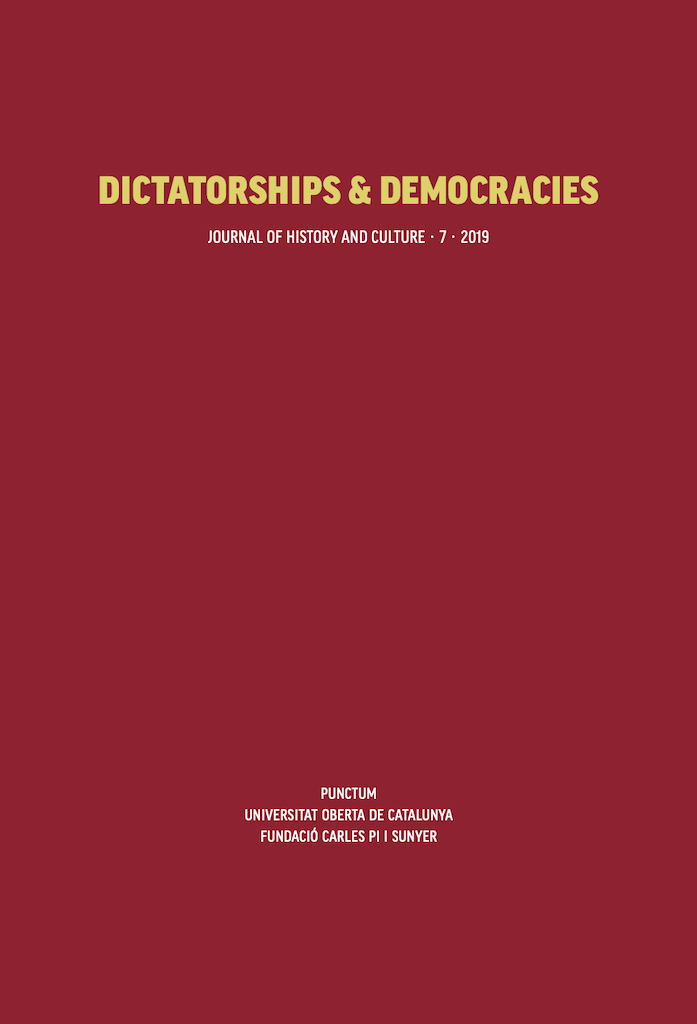Germany, the Inter-war European Crisis and the Spanish Civil War
Article Sidebar

Main Article Content
The inter-war European crisis changed significantly the role and place of Europe in the world. Although National Socialism massively accelerated this crisis, pushing it to the extreme until it destroyed the idea of Europe and the continent’s preponderance, it must be highlighted that the crisis emerged before the rise and the impetuous development of National Socialism. The First World War left in its wake a world in shatters that ended up becoming the «original catastrophe» of the «age of extremes», in the words of Hobsbawm. The Great War marked the beginning of the end of Europe’s global hegemony. The post-war order was characterized by a basic political power shift and a constant destructive instability, which were the distinctive features of the twenties and thirties. Germany’s radical revisionism was only possible since the order emerged in the Peace of Versailles lacked legitimacy; as a consequence of that the Third Reich managed to drag all Europe into the Second World War.
Article Details

This work is licensed under a Creative Commons Attribution 4.0 International License.
Copyright
Contents published in Dictatorships & Democracies are subject to a Creative Commons Attribution 4.0 International licence, the complete text of which can be consulted at https://creativecommons.org/licenses/by/4.0/deed.en. The authors retain the copyright. You may copy, distribute, transmit and adapt the work, provided you attribute it (authorship, journal name, publisher) in the manner specified by the author(s) or licensor(s).
Authors are responsible for obtaining the necessary licences for the images that are subject to copyright.
Assignment of intellectual property rights
The author non exclusively transfers the rights to use (reproduce, distribute, publicly broadcast or transform) and market the work, in full or part, to the journal’s editors in all present and future formats and modalities, in all languages, for the lifetime of the work and worldwide.
"I hereby declare that I am the original author of the work". The editors shall thus not be held responsible for any obligation or legal action that may derive from the work submitted in terms of violation of third parties' rights, whether intellectual property, trade secret or any other right.